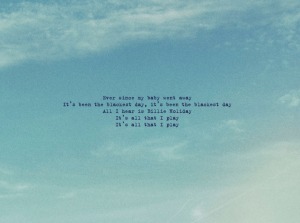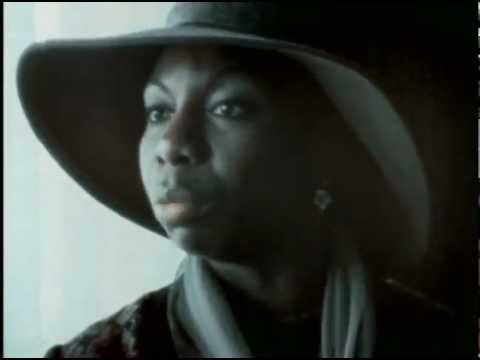Beginning on the 21st May 2020, my phone blew up for a few consecutive days with incredulity, anger and disbelief at Lana Del Rey’s numerous statements directed at ‘the culture’. I still don’t really know what she is trying to define by that term. After the first statement, in which she namechecks numerous black female artists who have allegedly been allowed to sing about ‘being sexy, wearing no clothes, fucking, cheating etc.’ when she has not, I declared to one group chat that I would get our thoughts and analyses, which were extensive, down here. I held off writing straight away and I’m glad I did: what followed were even more spurious statements and rebuttals from Del Rey about how people criticising her had begun a ‘race war’, and that people who ‘misunderstood’ her should ‘fuck off’. We saw her Instagram fill with images of white Hollywood movie stars, including that classic chauvinist James Bond no less, a GIF of her pole dancing in the ‘Gods and Monsters’ music video, and declarations that ‘no one gets to tell your story’. Del Rey claims that she embodies a ‘delicate’ form of femininity that is currently rejected by feminism, bizarrely claiming that it will be the forefront of a ‘new/3rd wave of feminism that is rapidly approaching’. We are, of course, already in the fourth wave and have been since the early 2010s. I aim to discuss Del Rey in relation to feminism at greater length in another essay.
With regards to race, Del Rey has, unfortunately, proven herself painfully unaware of how much privilege her whiteness affords her, and thereby has been unable to show how race and her question of feminism intersect. I can see why Del Rey believes that she is, in the words of Ibram X. Kendi, ‘anti-racist’: she cast A$AP Rocky as her JFK in the ‘National Anthem’ video and wrote songs with him for ‘Lust For Life’; she has collaborated numerous times with The Weeknd; some of her best friends are black women who have featured prominently in her music videos and on tour from ‘Lust For Life’ through to ‘Norman Fucking Rockwell’; and she is giving all of the profits from her poetry collections as reparations to the indigenous Navajo community. She has proven, however, that she is not necessarily anti-racist, with each new comment she released digging her heels into her first problematic statement even further until a defence of her is rendered almost impossible.
Lana’s original namecheck of predominantly black and Hispanic women, Doja Cat, Ariana Grande, Camila Cabello, Cardi B, Kehlani, Nicki Minaj and Beyoncé, was used to highlight how these women have been celebrated and rewarded by ‘the culture’ for being sexual, provocative and complex whilst she has been maligned. In doing this, she demonstrated a lack of awareness about the more significant barriers that Women of Colour (WOC) face in getting to a prominent position in the music industry in the first place, as well as equating these women, who are already exposed to latent racist exoticisation stereotypes, purely with sexuality and sexual mores. This is deeply ironic coming from someone who has both Nina Simone and Billie Holiday’s names tattooed onto her clavicle and has regularly referenced Holiday in her music, for example in the music video for ‘Summer Wine’ and on the song ‘The Blackest Day’ from the album ‘Honeymoon’.

Simone and Holiday both famously used their art to fight racism and empower black youth throughout their careers, for example in the songs ‘Young Gifted and Black’ and ‘Strange Fruit’ and in numerous other contexts. This video of Simone talking about the artist’s duty to reflect the times, particularly with regards to fighting racism, is one that Del Rey has shared herself on her Instagram:

It is bizarre, then, that Del Rey, who so idolises these black women who spent their careers and lives fighting racism, is unable to acknowledge and concede that bringing WOC into a conversation about how she has been hard done by the music industry is problematic. It does not matter how may times you tell people that you are not racist: if you are making racially coded comments and comparisons, even and especially unconsciously, then refusing to accept the fact that your white ignorance and privilege have been exposed by those very comments, you are being racist. For white people, our racism is often unconscious and unthought of: our work is to bring our assumptions and everything we take for granted as white people into consciousness, to learn, listen and ultimately become allies in the fight against racism, racial inequality and injustice. Not to dig our heels in, take offence and accuse others of starting ‘a race war’.
This need for clarity and consciousness has become even more sickeningly potent in the days after Del Rey’s flurry of racially coded and unapologetic statements. The video went viral on 25th May 2020 of Amy Cooper threatening Christian Cooper (no relation), a black man, that she would call the police and tell them that he was threatening her life when he had asked her to put her dog on a lead in Central Park’s protected nature reserve ‘The Ramble’. Amy Cooper chillingly showed how America’s law enforcement system, well known for its extensive brutality of black people, was geared in her white favour, and that she was more than willing to use it to get her own way at whatever genuinely life-threatening cost to Christian Cooper. Within days, we saw what the outcome could have been: George Floyd, an unarmed black man, suffocated to death by police officers in Minneapolis. In recent weeks, we have already seen how the American justice system values the life of Ahmed Aubrey, who was lynched by a white father and son in Georgia. It seemed serendipitous that we had this public genealogy of white supremacy and racism unfold so compactly this week: from Lana Del Rey accusing people of starting a ‘race war’ when what she had articulated was racially coded and, yes, racist; to a white woman using her whiteness as a weapon to threaten a black man who left the altercation, thankfully, safe; and yet another terrible and all too familiar example of police officers murdering an unarmed black man. Even though what happened with Del Rey can be interpreted as a celebrity scandal, it does not exist in a vacuum. Every single part of the events of this week are connected, and are expressions of what is normalised and still accepted in a white supremacist society.
This is not, of course, a problem that only exists in the USA. As writer and journalist Reni Eddo-Lodge argues in her amazing book ‘Why I am No Longer Talking to White People About Race’, by focusing on race as something that happens on the other side of the Atlantic, Black British history is ‘starved of oxygen’ and not given the attention it needs. Racism and white supremacy are alive and well in the UK, and we cannot fall into complacency, believing that it is only in the USA that racism exists. I have spent the past few weeks writing an inquiry project for my teacher training qualification (PGCE) about race and curriculum in the UK and there is no doubt in my mind that the National Curriculum devised by Michael Gove, particularly in Key Stage Four English, serves to perpetuate white cultural hegemony, erasing, denying and ignoring the communities and cultural identities of Black, Asian and Minority Ethnic (BAME) pupils and anyone else who identifies as non-white British. White people are profoundly ignorant of the way in which we accept whiteness in all parts of our lives as standard and normal, as though our entire country’s history was not built off the back of slave labour and colonial oppression of BAME people. Now more than ever, white people need to be doing the work to make our unconscious privileges and ignorance, conscious. This is a battle, in part, because ideological vehicles like The National Curriculum hit us when we are young; but as responsible, conscious adults, we must actively educate ourselves. Too many people continue to suffer and we must do our part to fight and stop that.
This essay has been fuelled by anger, to be sure. But I also offer it in the spirit of generosity. I have been critical of Lana Del Rey because I think it is important for white people to call each other out and educate one another about the way our unconscious privilege and ignorance is a form of racial violence. As such, I want to provide a list of materials that have helped and continue to help me, as a white person, to recognise and check my own privilege and ignorance, which, I hope, help me to be an ally to all BAME people and actively fight racism. I recommend the following to all white people:
‘Why I am No Longer Talking to White People about Race’ by Reni Eddo-Lodge
‘About Race’ podcast by Reni Eddo-Lodge
‘Natives: Race and Class in the Ruins of Empire’ by Akala
‘The Hate U Give’ by Angie Thomas
‘Americanah’ by Chimamanda Ngozi Adichie
‘I Know Why the Caged Bird Sings’ by Dr. Maya Angelou
‘A Raisin in the Sun’ by Lorraine Hansberry
‘White Teeth’ by Zadie Smith
‘Becoming’ by Michelle Obama
‘The Ministry of Utmost Happiness’ by Arundhati Roy
‘The Wretched of the Earth’ by Frantz Fanon
‘Orientalism’ by Edward W. Said
‘OJ: Made in America’ by Ezra Edelman
‘Black Panther’ by Ryan Coogler
‘Straight Outta Compton’ by F. Gary Gray
‘Get Out’ by Jordan Peele
‘Mississippi Burning’ by Alan Parker
‘Lemonade’ by Beyoncé
‘Homecoming’ by Beyoncé
‘To Pimp a Butterfly’ by Kendrick Lamar
‘Kiwanuka’ by Michael Kiwanuka
Gal-dem
The Runnymede Trust resources
‘Let Them Drown: the violence of othering in a warming world’ chapter in ‘On Fire: The Burning Case for a Green New Deal’ by Naomi Klein
‘Episode 102: Empire State of Mind: overhauling the history we teach’ by ‘Reasons To Be Cheerful’ podcast
‘Episode 59: Black Revolution and Whiteness Psychosis with Kehinde Andrews’ by ‘Under the Skin’ podcast
The International Slavery Museum, Liverpool
Here are some works that I am yet to start:
‘How to be Antiracist’ by Ibram X. Kendi
‘Brit(ish)’ by Afua Hirsch
‘Things Fall Apart’ by Chinua Achebe
‘Bury My Heart at Wounded Knee’ by Dee Brown
‘Girl, Woman, Other’ by Bernadine Evaristo
‘Women, Race and Class’ by Angela Davis
‘Sister Outsider’ by Audre Lorde
‘If Beale Street Could Talk’ by James Baldwin
‘Ain’t I a Woman: Black women and feminism’ by bell hooks
‘Bad Feminist’ by Roxane Gay
‘Hamilton’ by Lin Manuel Miranda
I am absolutely in need of more recommendations, particularly films, so please do send me anything that you are aware of that will help me in my learning.

